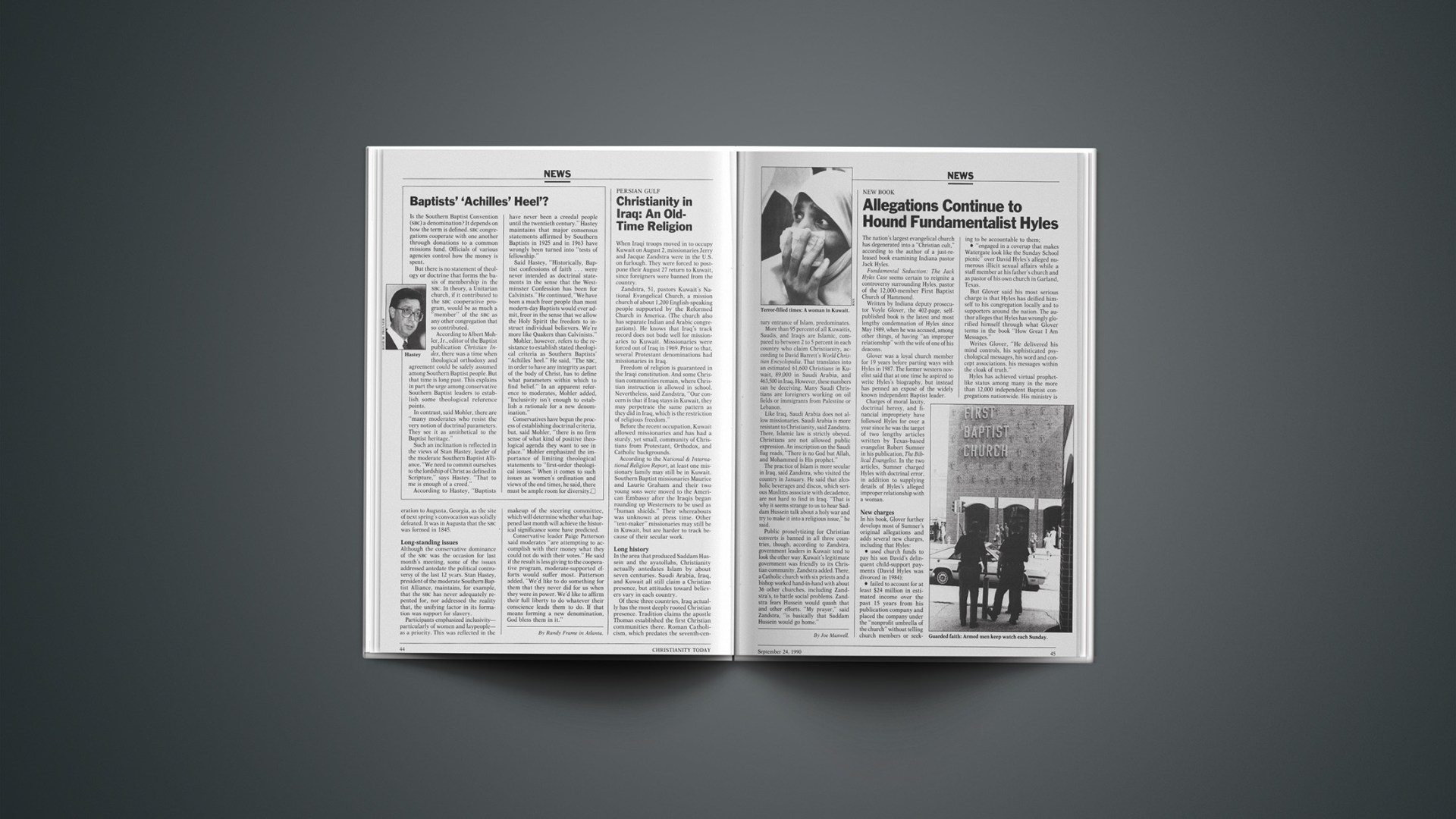When Iraqi troops moved in to occupy Kuwait on August 2, missionaries Jerry and Jacque Zandstra were in the U.S. on furlough. They were forced to postpone their August 27 return to Kuwait, since foreigners were banned from the country.
Zandstra, 51, pastors Kuwait’s National Evangelical Church, a mission church of about 1,200 English-speaking people supported by the Reformed Church in America. (The church also has separate Indian and Arabic congregations). He knows that Iraq’s track record does not bode well for missionaries to Kuwait. Missionaries were forced out of Iraq in 1969. Prior to that, several Protestant denominations had missionaries in Iraq.
Freedom of religion is guaranteed in the Iraqi constitution. And some Christian communities remain, where Christian instruction is allowed in school. Nevertheless, said Zandstra, “Our concern is that if Iraq stays in Kuwait, they may perpetrate the same pattern as they did in Iraq, which is the restriction of religious freedom.”
Before the recent occupation, Kuwait allowed missionaries and has had a sturdy, yet small, community of Christians from Protestant, Orthodox, and Catholic backgrounds.
According to the National & International Religion Report, at least one missionary family may still be in Kuwait. Southern Baptist missionaries Maurice and Laurie Graham and their two young sons were moved to the American Embassy after the Iraqis began rounding up Westerners to be used as “human shields.” Their whereabouts was unknown at press time. Other “tent-maker” missionaries may still be in Kuwait, but are harder to track because of their secular work.
Long History
In the area that produced Saddam Hussein and the ayatollahs, Christianity actually antedates Islam by about seven centuries. Saudi Arabia, Iraq, and Kuwait all still claim a Christian presence, but attitudes toward believers vary in each country.
Of these three countries, Iraq actually has the most deeply rooted Christian presence. Tradition claims the apostle Thomas established the first Christian communities there. Roman Catholicism, which predates the seventh-century entrance of Islam, predominates.
More than 95 percent of all Kuwaitis, Saudis, and Iraqis are Islamic, compared to between 2 to 5 percent in each country who claim Christianity, according to David Barrett’s World Christian Encyclopedia. That translates into an estimated 61,600 Christians in Kuwait, 89,000 in Saudi Arabia, and 463,500 in Iraq. However, these numbers can be deceiving. Many Saudi Christians are foreigners working on oil fields or immigrants from Palestine or Lebanon.
Like Iraq, Saudi Arabia does not allow missionaries. Saudi Arabia is more resistant to Christianity, said Zandstra. There, Islamic law is strictly obeyed. Christians are not allowed public expression. An inscription on the Saudi flag reads, “There is no God but Allah, and Mohammed is His prophet.”
The practice of Islam is more secular in Iraq, said Zandstra, who visited the country in January. He said that alcoholic beverages and discos, which serious Muslims associate with decadence, are not hard to find in Iraq. “That is why it seems strange to us to hear Saddam Hussein talk about a holy war and try to make it into a religious issue,” he said.
Public proselytizing for Christian converts is banned in all three countries, though, according to Zandstra, government leaders in Kuwait tend to look the other way. Kuwait’s legitimate government was friendly to its Christian community, Zandstra added. There, a Catholic church with six priests and a bishop worked hand-in-hand with about 36 other churches, including Zandstra’s, to battle social problems. Zandstra fears Hussein would quash that and other efforts. “My prayer,” said Zandstra, “is basically that Saddam Hussein would go home.”










